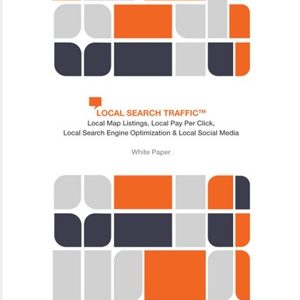
At a recent exhibition, TRI Hospitality presented new findings, one of which was rather alarming, albeit not surprising. According to their study, over the past decade, the average hotel room rate has increased by approximately 50%, whereas online travel agency (OTA) commissions have surged by over 150% in the same period. This disparity is certainly unwelcome, especially during challenging economic times.
With this in mind, it becomes crucial for hotels, or any businesses for that matter, to elevate their strategies rather than rely on the "easy route" of intermediaries for visibility. We increasingly see a need for more balanced online marketing. Here are some considerations.
Solving With Practical Sense
One of the best ways for hoteliers (or any commission-based business) to take control is by focusing on excellent customer service and a high-quality product, which naturally results in more repeat business. A returning customer is a "direct" customer, eliminating the need for external marketing channels. Businesses that excel in their core competencies strengthen their brand, which, when combined with social and other digital amplifiers, leads to more direct website visits. To advance this, hotels and businesses must gather and process information about their satisfied customers, create engagement campaigns such as newsletters, and encourage direct return business.
Moreover, offering special deals and incentives broadens reach and effectiveness, while enabling better tracking of ROI and conversions. By excelling in their core competencies, businesses can pull customers away from agencies and toward direct booking channels. Publicizing and promoting the price difference between direct bookings and commission-based channels can also be highly effective.
As more people access the internet through mobile devices, it becomes essential for customers to access your site via smartphones and other devices. Creating a mobile-friendly or responsive site makes it easier for customers to book or buy online. Options for purchasing, regardless of the product, often increase the likelihood of a sale. With mobile ads, contextual advertising, and established methods like affiliate marketing and email marketing, businesses can create a better marketing strategy than relying entirely on OTAs or intermediaries.
The image below from McGill University’s Asst. Professor of Marketing, Sammer Mathur, Ph.D., suggests that intermediaries may be counterproductive for conversions.
It’s also important to focus on local search terms when developing content for your website. Localization isn’t a new concept in advertising but has become increasingly important for digital marketing. Think of yellow pages; you received them for your local area, not for distant locations. With the internet, people search globally, but for travel and hotels, customers often look for specific locations. This is true for many businesses. As an independent accommodation provider, it’s better to focus on terms like "hotels in Notting Hill" or "Hotels near Hyde Park" rather than broader terms like "Hotel London." With the correct structure and content, it becomes easier to be found, regardless of the search method.
Hospitality Use Case
For travel and hospitality businesses, tools like Google Hotel Finder, combined with Google Places and recent acquisitions like Zagat’s and Frommers, make it imperative for individual hotel and hostel businesses to optimize their Google Places accounts. Ensuring relevant data, content, video, and images are present can attract consumers who are drawn to maps in search results, particularly for location-based searches. This ultimately drives business directly and lowers sales costs. Whether Google+ gains popularity remains to be seen, but the importance of social email in connecting with clients is indisputable.
Finally, using Google Adwords with your branding campaigns is recommended. When registering with a marketing agency, you agree for them to run pay-per-click campaigns, which is positive. Google Adwords ensures your site scores highly for brand search terms. In conjunction with other campaign strategies, Adwords enhances customer reach and increases direct revenue, solving the issue of high commissions. Adwords tracking features further improve business efficiency and ROI. If resources allow, consider using long-tail terms for higher conversion opportunities.
In summary, don’t let larger players dominate your revenue. Properly investing in your website (design, speed, usability, etc.), and managing content and social media to generate interest and links for your product will significantly improve your chances of success over the mid to long term.
Image credits: McGill University slide share – courtesy Dr. Sameer Mathur



